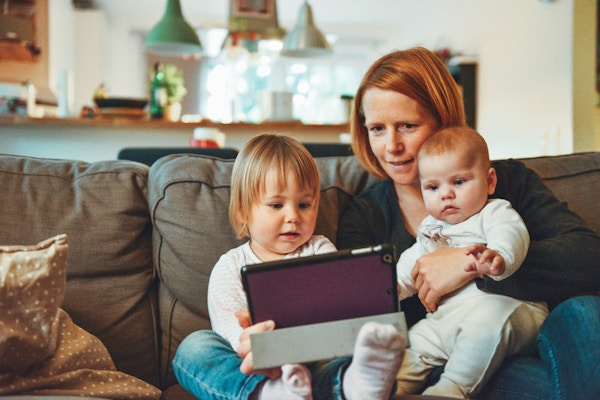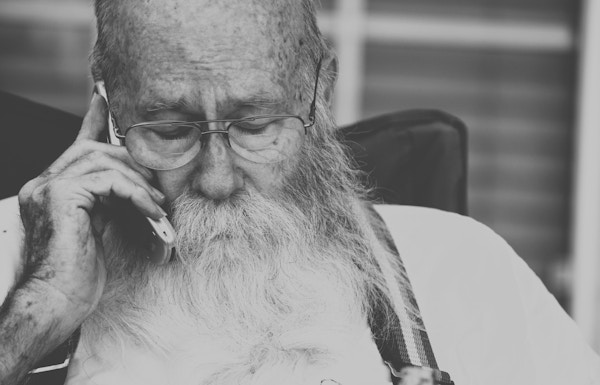And yet lockdown is not nothing. Psychologically, having one’s freedoms curtailed from one day to the next is a huge and difficult adjustment and one that acclimatisation to will vary from person to person. That response depends on many variables, not least each unique physical living situation; the health of one’s relationships with those we’re isolating with (or indeed, whether we’re alone); financial position; and mental health at the outset.
Suky Macpherson is a Chartered Counselling Psychologist, a Certified Schema Therapist and an Associate Fellow of the British Psychological Society who works both in the NHS and private practice. She reflects, ‘What this situation is creating is a sense of loss of control. We don’t understand this virus very well yet, except that it is killing people randomly. As humans we like to know our beginnings and our ends, which we don’t at the moment.’
While, of course, there remains no solution-based advice and no panacea, there are ways, she suggests, of regaining some control even within the situation. ‘We can take back control in small ways in our own lives,’ she explains. ‘It can be hard to do, but do try to have a timetable. This will give you a sense of agency again. Other ways to feel better are by sticking to a sensible diet. Do eat good food if you possibly can. If you can get outside for an hour a day, do so, but for those who can’t, try meditation or any of the many free online exercise videos, like the five-minute workout with Joe Wicks. Many of us are not sleeping properly, and while that may be in part down to anxiety, it’s also that the constraints of lockdown mean that we’re simply not moving enough.’

Getting up at your usual hour and making yourself go to bed by a certain time is also central to maintaining a sense of relative wellbeing. Suky advises showering and getting dressed as if you were going to work. As she puts it, ‘The more you hang about in your pyjamas, the lower morale will be.’ If you are lucky enough to have a bigger home – and indeed a garden – she advises moving around the house for the various timeslots in your schedule. ‘If it’s possible – and for many it won’t be – do try to timetable activities in separate spaces as it will give a shape to your day. AAnd do factor in relaxing activities, like watching TV, but try not to let them bleed through the day. While you need to be able to unwind, hours of sitting on the sofa won’t make you feel good.’
Though they are a very good start, humans need more than food and routine to sustain them. Beyond the daily schedule, communication is imperative for most of us. In these days of physical social isolation, we are fortunate to live in well-connected times. Suky says, ‘FaceTime and Zoom parties are very good ways to bridge that gap if you’re lucky enough to have friends with the technological know-how and inclination. If you’re an extroverted type, why not try an online activity with others? I do a group meditation over Zoom and it’s been so helpful and uplifting. We always leave time for a good chat at the end.’

There are also a glut of new skills you can pick up online too – from craft to the free courses that the Open University is offering during lockdown. However, counsels Suky, don’t be hard on yourself or expect too much. ‘Schedule in short slots for activities,’ she says. ‘Humans are very goal orientated, so try to have one aim a day, however small. It could be tidying a drawer.’
A recent article in The Guardian by an Italian author locked down in Rome gave some insight into surviving isolation from the future (Italy being several weeks ahead of the UK in the pandemic’s progression).
‘The author describes how you’ll try to find fruitful and productive ways to spend your time, only to soon move past this stage and become obsessed by food, which is when you’re entering into survival mode. And this is what this is: all the stockpiling was an expression of survival mode. Men, often in particular, become very concerned with getting delivery slots and planning food for the days and weeks ahead, which perhaps goes back to their hunter-gatherer role.’ For the overwhelm which you may be feeling, Suky advises keeping a diary; expressing your thoughts can also help to contain them and curb feelings of being overcome.
But, notes Suky, the much-repeated claim that lockdown is a great societal leveller is a far cry from the reality. ‘Every situation is different,’ she says. ‘People with small children have a tougher time. Doing exercise with people like Joe Wicks together helps. Taking the kids in shifts while the other works or has some time out is helpful, though if you’re a single parent, it is extremely difficult. If you are in that situation, do try to seek out other single parents online for some solidarity. There are also people reading stories to young children online – or you could perhaps take it in turns to do this over FaceTime or Zoom for a group of single parents, giving each other a regular moment to themselves. It’s also hard for teenagers cooped up with their parents. There is a free online counselling service called Kooth, which is incredibly helpful. It’s not 24/7 though, so if you do need out-of-hours help, The Samaritans is very good, not just for teenagers, of course, but for anyone in horrible situations they cannot bear.’

For those in destructive relationships, lockdown will naturally be a very frightening time. In the UK, the national domestic abuse helpline has recorded a 25 per cent increase in calls and online requests for help since lockdown began. Anyone who is in a dangerous domestic situation should contact Refuge, which has a 24-hour freephone helpline (0808 2000 247), Similarly, Respect has a helpline which can offer help to both female and male victims of domestic abuse. That traffic to Refuge’s website has gone up by 150 per cent since lockdown began throws into sharp relief how, if you’re bored or fed up, you’re probably at the luckier end of the spectrum.
There are, says Suky, so many difficult-to-navigate angles from which to come at this. ‘There are people who are grieving and cannot arrange funerals for loved ones. For these people, Cruse is a good resource. There are also people losing businesses who don’t qualify for help. And of course, there are many, many lonely people finding this all very hard.’

For those feeling the lack of human contact, Suky suggests volunteering for Age UK’s telephone befriending service. In lockdown, as ever, volunteering is never just a one-way street. It can help the volunteer as much as the person in need of your services.
Do, above all, says Suky, try to hang on to the fact that this situation cannot and will not last. ‘This is not forever,’ she counsels. ‘For now, we must all just try to take it a day at a time. And if in doubt, do reach out to local groups. Don’t be afraid that people won’t want you. If you want to set up a WhatsApp group, do it. The chances are there will others who are very pleased that you did.’
By Nancy Alsop
April 2020
READ MORE
9 Courses To Do Online While On Lockdown
8 Brilliant Online Craft Classes
10 Heart-Warming Stories That Have Emerged From The Covid-19 Pandemic


